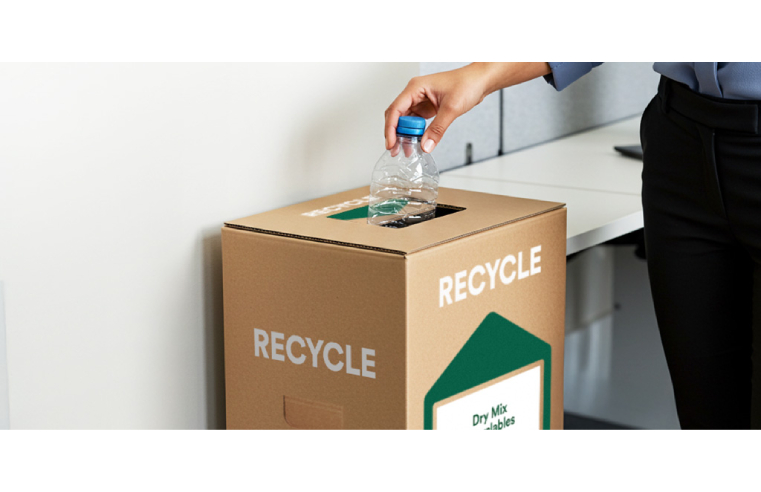Urinal mats in public places in England will begin to carry blood in pee cancer warnings for men, as part of a major new NHS earlier diagnosis drive.
The NHS has chosen P-Wave – a leading urinal products brand – to put the message “Blood in your pee? Contact your GP practice” on urinal mats in thousands of men’s toilets across the country. Pubs, restaurants, shops, hotels and sports stadiums will be among the public places using the lifesaving mats with men’s workplaces also targeted.
Passing blood in pee – even just once – is a common symptom for bladder, kidney or prostate cancers, which are all among the ten most prevalent cancers in the country, and generally affect men more than women.
Other common symptoms for bladder, kidney or prostate cancer include peeing very often, sudden urges to pee or a burning sensation when you pee, difficulty peeing, a lump or swelling in your back, under your ribs, or in your neck, or pain in the side between the ribs and the hip.
The NHS push comes alongside a new survey found that nearly half of men (46%) thought blood in pee was not a symptom of cancer. And two-fifths (39%) of men surveyed said they would wait until they’ve noticed blood in their pee multiple times before seeing a GP.
The new findings also show that just over half of men in England use a public urinal at least once a week and the majority of men (71%) said they would be more likely to contact their GP practice if they saw messaging on a urinal mat and were experiencing blood in their pee.
Vital cancer awareness messaging
Health chiefs believe this unique, first of its kind partnership with P-Wave will enable the NHS to place vital cancer awareness messaging in public urinals, a relevant location where symptoms such as blood in pee may first be noticed.
Data shows that more people than ever before are being seen and treated by the NHS for cancer. In the last year the number of people receiving lifesaving checks for cancer hit nearly three million (2.92m) – more than any other year on record.
Diagnosing cancer early means it is easier to treat and can save lives, which is why the NHS is urging people to be aware of changes in their bodies and contact their GP practice if they notice symptoms that could be cancer.
Professor Peter Johnson, NHS England National Clinical Director for Cancer, said: “Having blood in your pee – even just once – shouldn’t be ignored because it can be a sign of cancer, so it needs to be checked out by your GP team.
“Cancer survival is at an all-time high, and we’re seeing more cancers than ever before being picked up at an early stage – and this partnership with P-Wave is just one of the many ways we are helping people to be aware of possible cancer symptoms.
“While this initiative is about helping men to spot the signs of cancer, everyone needs to be more aware – please look for any changes that may be unusual for you – and get checked out early, it could save your life.”
Cancer survivors’ experiences
The NHS initiative is being supported by: David Day, 70 years old, from Cambridge; Adil Malik, 28 years old from London; and Michael Sloane, 67 years old, from Buckinghamshire, who were all diagnosed with cancer after noticing blood in their pee.
David said: “As a bladder cancer survivor, I am a passionate advocate for being body aware and contacting your GP practice straight away if you notice changes in your body, such as blood in your pee. I am now able to live a normal life thanks to the quick diagnosis and treatment I received which is why I’m supporting the new partnership between the NHS and P-Wave. You know your body best – so please pay attention to any warning signs and get checked as soon as possible.”
Adil said: “I first noticed blood in my pee in 2021. As a fit and healthy 28 year old, the last thing I thought it could be was cancer. But after losing a vast amount of weight very quickly, I decided to reach out to my local GP practice, which led to my diagnosis of kidney cancer. Thankfully, it was treatable with help from the amazing team at the Royal Free Hospital! My story shows that cancer can affect people of any age and the NHS and P-Wave partnership is a great way to remind people to contact their GP practice if they notice a change in their body which doesn’t feel right.”
Michael said: “When I first noticed blood in my pee in 2013, I didn’t think it could be cancer. But, after a few days my wife urged me to contact my GP practice which led to my bladder cancer diagnosis. If it wasn’t for my wife, I’m not sure when I’d have contacted my doctor – so this new NHS initiative with P-Wave is such an important way to ensure men get the message that if they have blood in their pee, they really need to get it checked out. I’m so grateful that I sought help when I did, and now I work at Fight Bladder Cancer where I’m in a position where I can help highlight this vital sign of cancer to others.”
Proud to be working with NHS England
P-Wave Managing Director Dave Carson said: “We are proud to be working with NHS England on this first-of-its-kind partnership, which offers a creative yet simple way to convey a potentially life-saving cancer awareness message.
“We are delighted that through our P-Wave urinal mats, we can encourage people to check for blood in their pee and to contact their GP practice if they spot it and are excited to share these with our customers and play a part in helping spread this important message.”
The NHS is harnessing the very latest technology and initiatives such as community lung health checks and trials of a blood test that can detect up to 50 cancers before symptoms appear, to diagnose cancer earlier and achieve its goal of diagnosing three quarters of all cancers at stage one or two by 2028.
The NHS is also accelerating the use of innovations like teledermatology for diagnosing skin cancer, which is already seeing some areas double the number of patients seen and speeding up diagnosis and treatment for tens of thousands with skin cancer.



































